During the last few days, the dictatorship of Daniel Ortega and Rosario Murillo kidnapped and banished another seven priests, from the dioceses of Matagalpa and Estelí, headed by Bishop Rolando Álvarez, also banished and denationalized. With them, the number of priests banished in the last two years amounts to 46 and at least 200 more have been forced into exile.
For the Nicaraguan Democratic Concertation (CDN), the kidnapping and banishment of priests and nuns is part of a policy that violates the right to religious freedom that the Ortega Murillo dictatorship has been imposing for several years. Although it is more aggressive against the Catholic Church, it affects the Evangelical and Moravian Church of the Caribbean Coast.
The confrontation is not a coincidence, it goes back in time due to the firm and prophetic attitude that the Catholic hierarchy has maintained. We need only to recall the letter that the Episcopal Conference of Nicaragua (CEN) delivered to Ortega in May 2014, expressing its concerns about the social, institutional, and human rights problems and the threats that some Churches were already receiving.
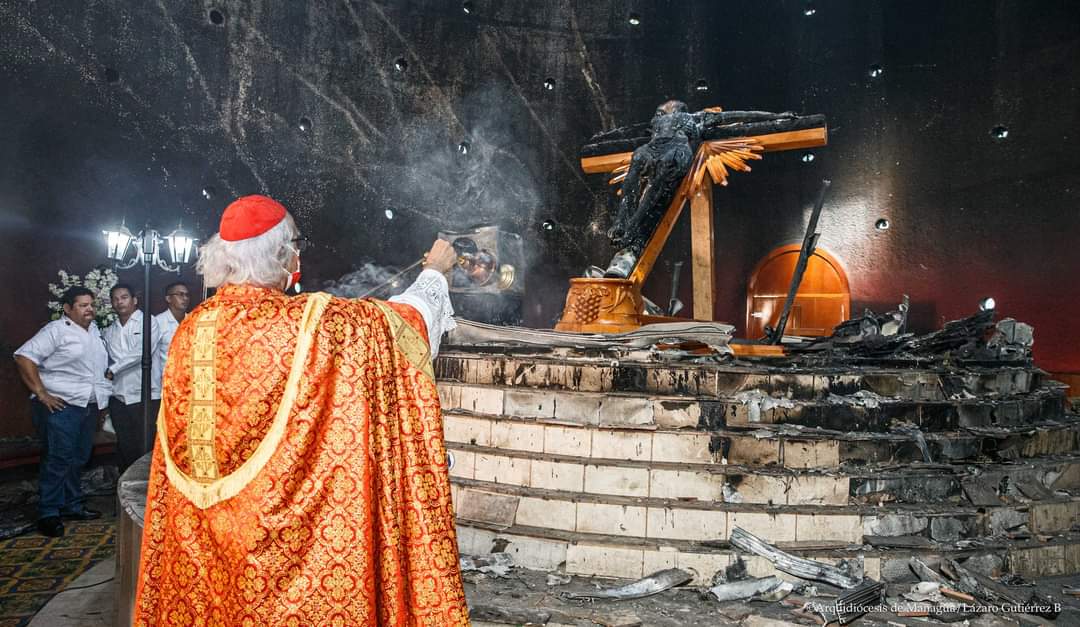
Since 2018 the Ortega Murillo raised the tone of their hate speech against the Church and some Catholic hierarchy. However, in May and at their request, the bishops played a leading role during the National Dialogue, also accompanying and protecting thousands of citizens protesting in the streets from State violence.
Reprisals didn’t take long to follow. In 2019 pastors with great recognition, among them the auxiliary bishop of the Archdiocese of Managua, Monsignor Silvio Báez, were threatened, persecuted, and forced to leave the country. Many churches were surrounded by the police, among them the San Miguel Arcángel church in Masaya, where several mothers of political prisoners were on hunger strike demanding their release.
The attacks continued when, in July 2020 and in the midst of the covid-19 pandemic, an attack on the Managua Cathedral destroyed the image of the Blood of Christ, venerated for almost four centuries.
In March 2022, a new escalation provoked the expulsion of the Vatican representative, Monsignor Waldemar Sommertag. Five months later, the police surrounded and then kidnapped Bishop Alvarez, tried him and sentenced him to 26 years in prison for alleged crimes against the homeland, and kept him in prison until February 2024, when he was stripped of his nationality and banished.
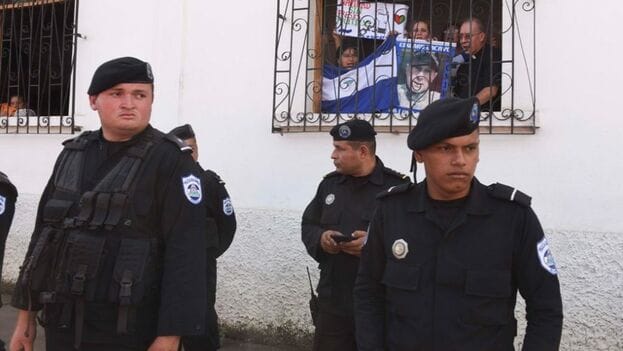
In 2023, after Pope Francis called them a rude dictatorship, they broke relations with the Vatican, withdrew the Ambassador, closed the Embassy, and asked the Holy See to close its nunciature in Managua.
In this context, universities, properties, radio stations, and Catholic and Evangelical social and charitable organizations were closed and confiscated. Threats, persecution, and imprisonment of religious leaders increased, forcing at least 200 priests and nuns to flee Nicaragua.
One of the most relevant attacks in 2023 was the confiscation of the Central American University (UCA), the dissolution of the Society of Jesus that administered it, and the expulsion of its priests. This was in addition to the expulsion of the Missionaries of Charity of St. Teresa of Calcutta, the Dominican Sisters of the Annunciation, the Daughters of St. Louise de Marillac, and other congregations.
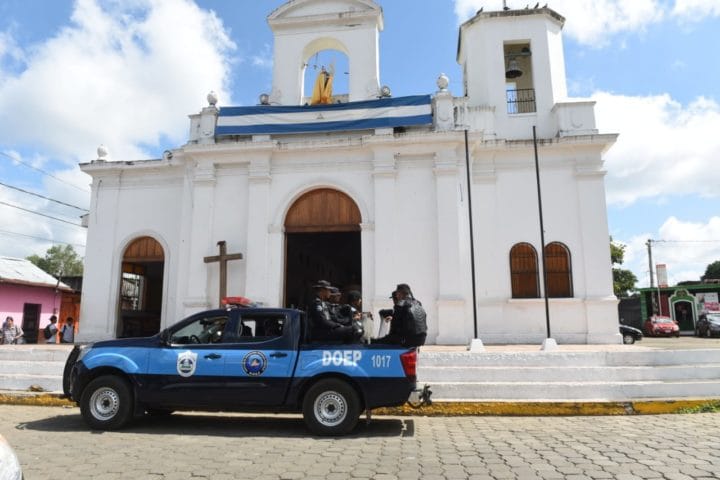
Other religious denominations are also victims of repression. In December 2023, eleven members of the organization Puerta de la Montaña were imprisoned and falsely convicted of money laundering. The Moravian church on the Caribbean Coast is also persecuted.
The violation of religious freedom extends to all citizens. The United Nations Group of Human Rights Experts on Nicaragua (GHREN) and the United States Commission on International Religious Freedom (USCIRF) presented reports denouncing the attacks and persecution against religious denominations and the prohibitions for citizens to practice their beliefs and carry out their activities freely.
For the CDN, the battle that the Ortega-Murillo regime is waging against religious beliefs and freedom constitutes a crime against humanity, because it flagrantly violates a fundamental right. In his totalitarian efforts, Ortega forgets that faith and religious beliefs are one of the fundamental pillars of the population and that the relationship with their pastors runs deep.
How far will the dictatorship go against the churches in Nicaragua?
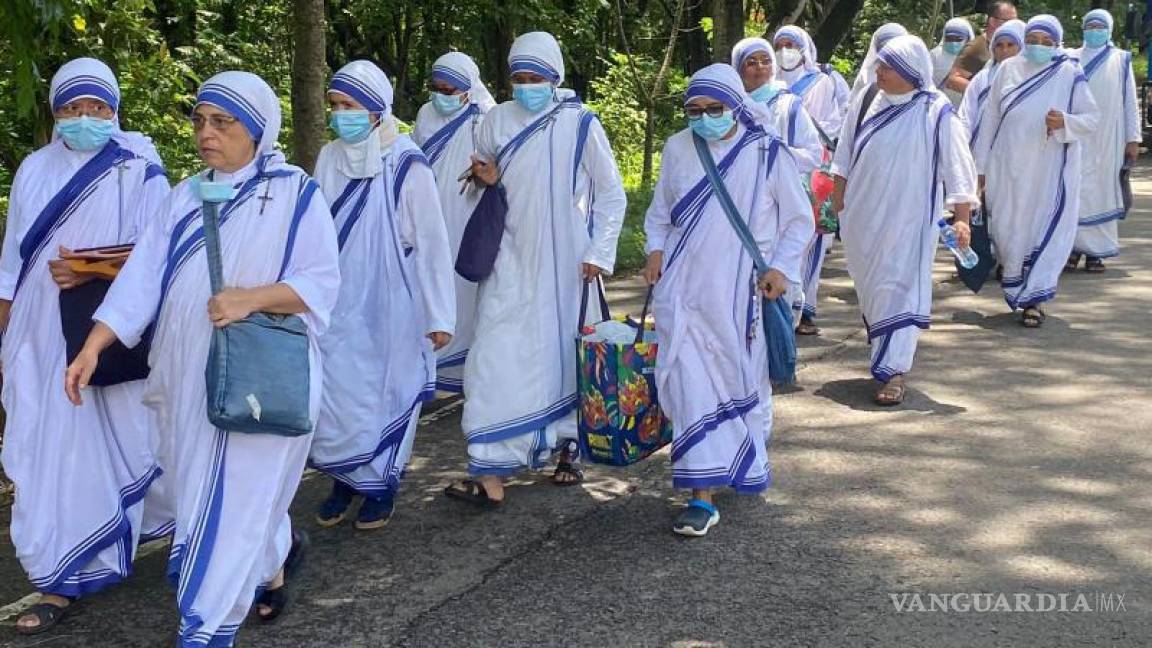
In recent days, Nicaragua has once again made international news due to a renewed wave of repression against religious freedom, expressed through the imprisonment and banishment of priests to the Vatican, and the legal cancellation of Catholic and evangelical associations.
The world’s main news agencies and Catholic portals, including those of the Holy See, published about the most recent attacks perpetrated by the Ortega Murillo regime.
What is not new is the attack against religion and freedom of worship regardless of whether the Church is Catholic, Evangelical, or Moravian. All are mercilessly attacked.
In the first stage of the FSLN regime in the 1980s, the Church suffered attacks by the revolutionary government through imprisonment, public accusations, banishment of priests, and displacement of communities, among others.
In the second period, which began in 2007, Daniel Ortega initially wanted a less contentious relationship with the Catholic Church. Despite this, through the Episcopal Conference of Nicaragua (CEN), the Catholic hierarchy maintained a public position consistent with the situation of the Nicaraguan people and their demands for the erosion of democratic institutions.
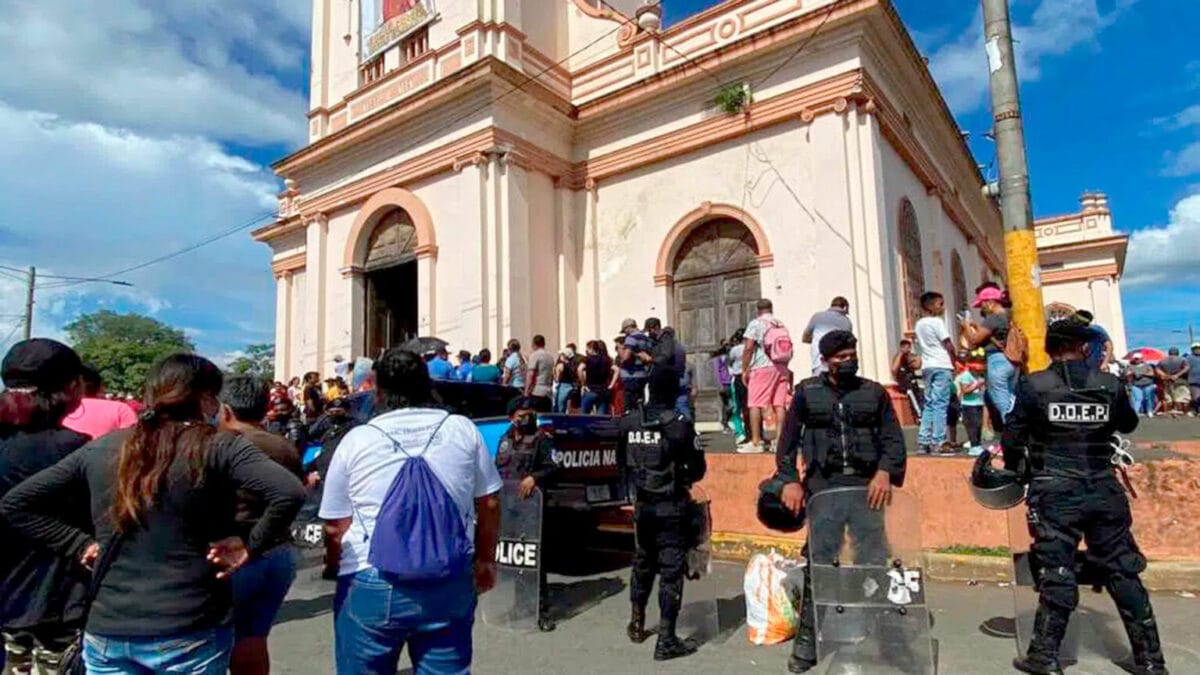
Now the norm is religious and secular leaders imprisoned, isolated, or banished, the pope’s representative expelled, religious associations canceled, religious media shut down and confiscated, mass celebrations outside temples prohibited, movable and immovable property expropriated, police presence in activities limiting freedom of worship, and religious leaders under permanent surveillance, threats, and blackmail.
Division and repression are the two sides of the coin that the regime has presented since the beginning of the socio-political crisis in 2018. A few Catholic and evangelical leaders, operate under its guidelines while the rest, the majority, face dramatic repression.
The dilemma is, to keep silent for those who remain in the country, or to speak out on behalf of the persecuted, knowing that there will be consequences. In other words, those who do not surrender have to keep quiet or pay the consequences. There is no room for maneuvering, they are hostages of the dictatorship just like the rest of the Nicaraguan people.
As a result of the above, the United States Commission on International Religious Freedom (USCIRF), designated the Ortega Murillo dictatorship within the category of Countries of Special Concern, which means that it commits systematic, continuous, and egregious violations against the right to freedom of religion or belief. Nicaragua now joins China, Russia, Cuba, Iran, North Korea, and others on the list of 17 countries that violate religious freedom.
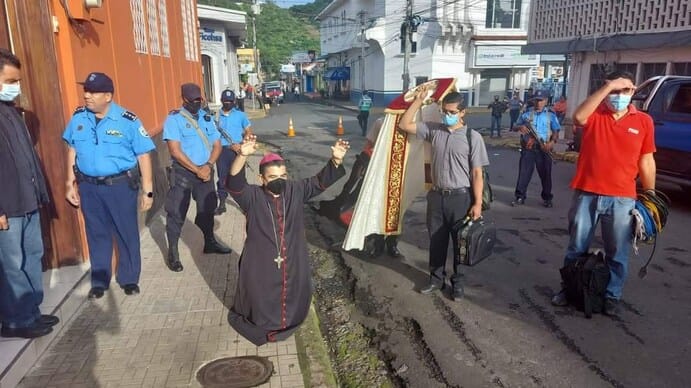
Religious freedom was dismantled along with freedom of expression, freedom of organization, freedom of association, and university autonomy. This happened before the eyes of the international community at no great cost to the violators.
In this context, it is worth asking: How far will the systematic violation of the Ortega Murillo family against the Churches and freedoms, including religious freedom, go? How far will the international community allow it to go? This is based on the understanding that Nicaragua is not a democratic regime, but a dictatorship and must be treated as such.
As the USCIRF report suggests, to exert the necessary pressure to stop these abuses, a joint effort must be made between countries and organizations, accompanied by sanctions on individuals and government agencies that violate these rights.
In the Nicaraguan Democratic Concertation (CDN), we are aware that this is not the time for statements, but silence is not the solution either, because in the long term, the cost will be greater. Latin America is at risk if the dictatorships in Nicaragua and Venezuela are allowed to continue to consolidate. It is time for the international community to act to preserve not only religious freedom but democracy throughout the region.
